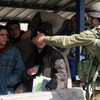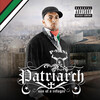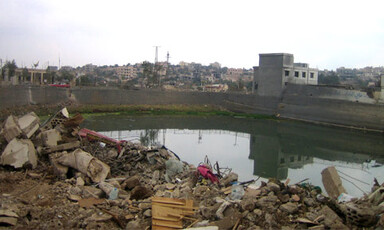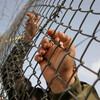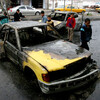
One Killed, 14 Wounded in Gaza Strip internal violence
14 March 2007
On Tuesday evening, 13 March 2007, a member of the ‘Izziddin al-Qassam Brigades (the armed wing of Hamas) was killed and 10 other persons, including three members of the ‘Izziddin al-Qassam Brigades, were wounded in Gaza City in an incident related to the clashes that took place last month in the Gaza Strip. Additionally, four persons, including a child, were wounded in clashes between members of Hamas and those of Fatah movement in the northern Gaza Strip. Read more about One Killed, 14 Wounded in Gaza Strip internal violence

